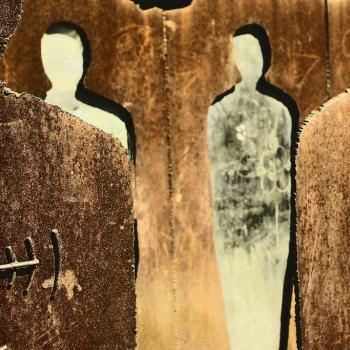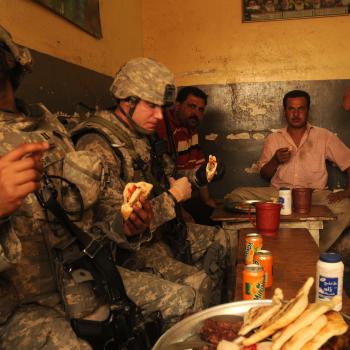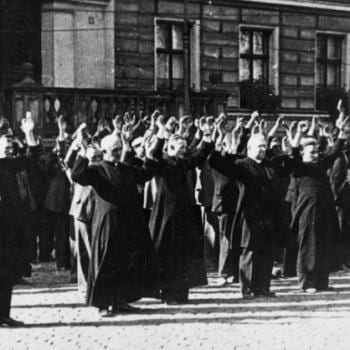
I suppose that it is inevitable to think about free will over the Christmas season – given that it is often preceded by a period of time where we ask children if they’ve been good or bad. Both of these concepts are, of course, relative to the child and the family: Christian, atheist, or otherwise. And this tends to get all caught up in the gift-giving as well. We generally present these as a sort of societal obligation rather than as a reward for moral righteousness (best not to dig too deep into that). But that said, we, as Christians, tend to place a lot of trust in free will. And a lot of trust that our gamble to choose a path of virtue will find its end in redemption and an eternal life of bliss with God. Which, while nice and all, gets us into some rather sticky conundrums that we don’t often care to think too much about.
Moral Traps
Such as the nagging feeling that I sometimes have that we as Christians are hindered in our ability to make the world a better place because of some of our beliefs. Or rather, the conditioning we have given ourselves because of our beliefs. Such as our belief that the souls of the innocent go straight to heaven. This means that in the wake of tragedies such as the shooting in Newtown, Connecticut, the death of thousands of migrant children in the waters of the Mediterranean, and the starving plight of refugees in Latin and Central America, Christians can shake their heads, offer some prayers, and make some Facebook comment about how “Isn’t it terrible, but at least they’re with Jesus now.” As opposed to doing something in the here and now.
Or the idea that God will mete out the final judgment for all, so people receiving judgment in this life is less important (unless we disagree with them politically, of course, and then Christian charity disappears). Bottom line, if the foundation of our belief is rooted in the idea that Christ died to redeem us and to open the doors to paradise – thereby making that paradise our final goal for life – then perhaps that makes us less inclined to actually make this world a better place. We are basically programmed to care less about the social justice of the whole as long as we are hitting our marks in our own personal life.
Do Atheists Do Social Justice Better?
Atheists or agnostics, on the other hand, have but this one world to work with. One try is all you get, so to speak. Of course, this could make some turn towards hedonism or fatalism. Just as some in Christianity turn towards an overzealous attempt to convert everyone “before it’s too late” in order to deal with the fairly heavy concept of mortality that tends to loom over some people more than others.
But atheists can break free of the trap that Christians all too often fall into. They can focus their work here on earth to try to bring some good into the world. Rather than wring their hands over the evil in the world, they have more motivation to just do something about it. In other words, atheists might be better suited for social justice work than the very people whose religion espouses its values. Which would be incredibly ironic.
So. Are atheists better at social justice than Christians? Hard to tell (blatant cop-out, I know, but the data doesn’t really exist). But they would seem to have a leg up on us as regards motivation. Some might find this disturbing or even upsetting to think about. I choose to look at it as an intellectual exercise, to drive me out of my complacency to work to make this world a better place.
Enjoy what you just read? Please share on social media or email utilizing the buttons below.
About the Author: Angry Staff Officer is an Army engineer officer who is adrift in a sea of doctrine and staff operations and uses writing as a means to retain his sanity. He writes at The Angry Staff Officer. He also collaborates on a podcast with Adin Dobkin entitled War Stories, which examines key moments in the history of warfare.












